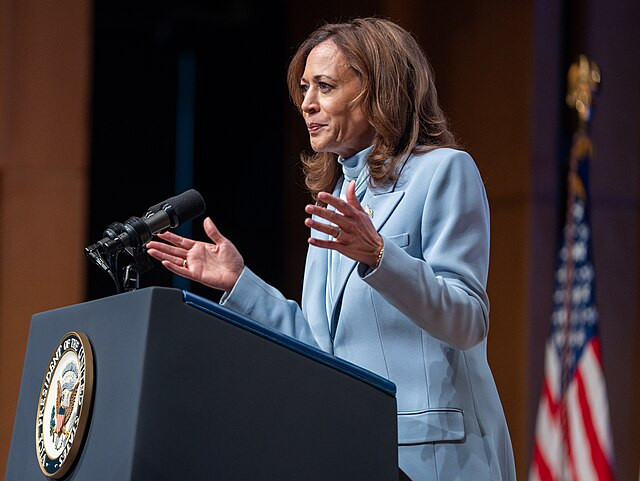Weeks after her resounding defeat in the 2024 election, Vice President Kamala Harris continues to solicit funds from Democratic donors, raising eyebrows and ire within her party. Emails from Harris' campaign and affiliated committees urge supporters to contribute to the "Harris Fight Fund." The messages emphasize the need to counterbalance President-elect Donald Trump's appointments and policies.
"With Trump nominating MAGA loyalists left and right, there is nothing more important than making sure we can fight back and hold him accountable," read one email, according to The New York Post.
The relentless fundraising appeals, however, have sparked criticism among Democratic strategists and donors. "Getting fundraising requests after any candidate has lost, when they admit that they are still millions of dollars in debt, having blown through over a billion dollars ... is especially galling," said Democratic strategist Jon Reinish, The NY Post reported. "When I got yet another request from the Harris campaign, I found it insulting."
Harris' campaign reportedly raised an unprecedented $1.5 billion in just 15 weeks, yet insiders claim it ended with $20 million in debt. While the Harris campaign denies these allegations, the perceived financial mismanagement has led to mounting calls for greater transparency. Democratic National Committee (DNC) member James Carville has proposed a detailed audit of Harris' campaign spending to understand where the money went. "When you have an airplane crash, people don't say, 'Let's look forward, not look back.' You look into what happened," Carville said, advocating for a forensic approach to campaign finance reviews.
Among the campaign's most notable expenses were $1 million to Oprah Winfrey's Harpo Productions, $900,000 for advertisements on the Las Vegas Sphere, and $500,000 to Al Sharpton's National Action Network. Records also show that more than half a billion dollars went to four Democratic media consulting firms. The campaign's aggressive spending on media production-accounting for 77% of expenses-stands in stark contrast to its minimal payroll outlay, which was just 2.5% of expenditures, according to AdImpact data.
The fundraising emails do not address the alleged financial mismanagement, instead citing the need to fund recount efforts, legal challenges, and transition-related expenses. Democratic strategist Mike Nellis expressed concern that such fundraising tactics could alienate donors. "I understand that the Harris campaign is in a very difficult position with the debt they have," Nellis said. "But stuff like this erodes trust."
The controversy comes as the DNC prepares for a leadership change. With President Biden set to leave office, the new DNC chair will inherit the task of addressing the fallout from Harris' campaign. Prominent candidates for the position include Minnesota Democratic-Farmer-Labor Party Chair Ken Martin and former Maryland Governor Martin O'Malley. Transparency and financial accountability are expected to dominate discussions as party officials seek to restore donor confidence.
Calls for reform are not limited to Harris' operation. James Zogby, a longtime DNC member and candidate for vice chair, has proposed creating an oversight committee to monitor the party's finances. "I want to make sure we have a conversation about where the money goes and why we don't know where it goes," Zogby said, as reported The Politico.
The broader issue of post-election fundraising also extends beyond Harris. Former Secretary of State Hillary Clinton's 2008 campaign took five years to pay off $25 million in debt. Barack Obama's 2012 campaign carried $6.8 million in debt until 2018. Harris' fundraising strategy, which channels donations through joint fundraising committees, has faced scrutiny for its transparency and its prioritization of payments to the DNC and state parties before addressing campaign debts.
President-elect Trump, meanwhile, has continued his own post-election fundraising through merchandise sales and donation appeals. Independent candidate Robert F. Kennedy Jr., who endorsed Trump after dropping out of the race, has also sought donations to pay off campaign debts.




